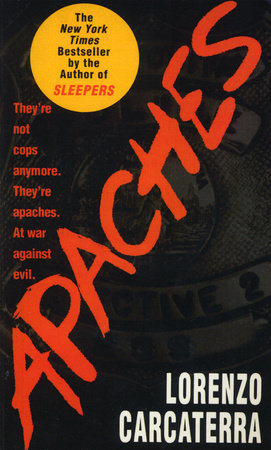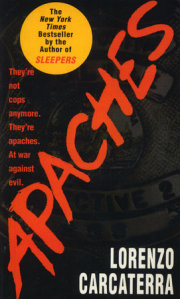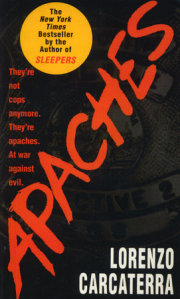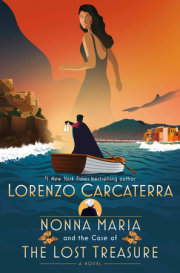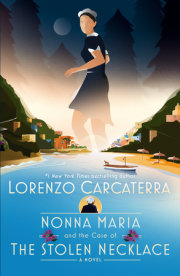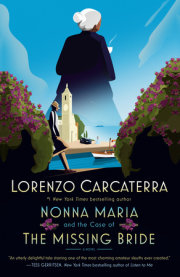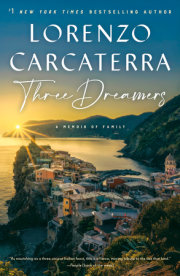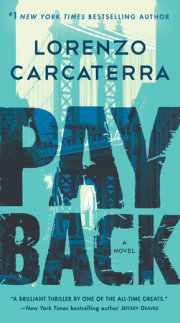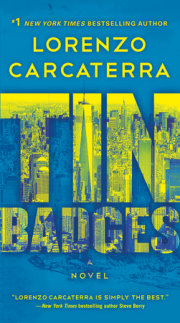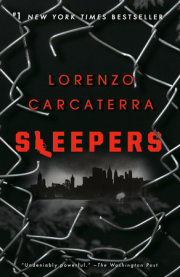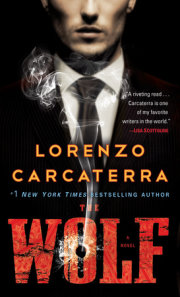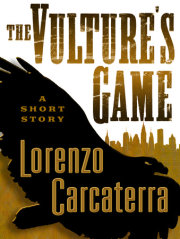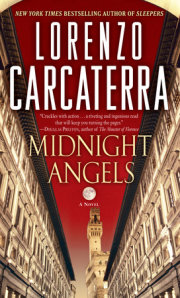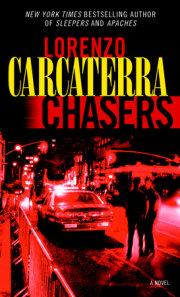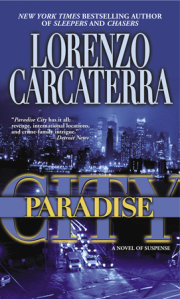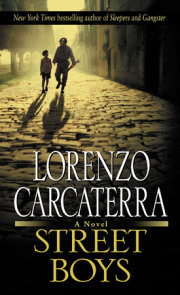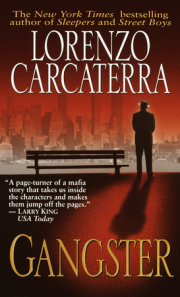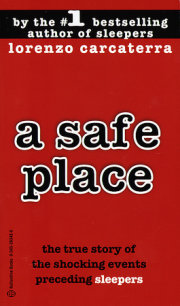Boomer
GIOVANNI “BOOMER” FRONTIERI never wanted to be a cop. He was a three-letter athlete during his school years at St. Bernard’s Academy, a private high school in downtown Manhattan his parents insisted he attend. He would leave their cold-water railroad apartment each morning before sunup and return each evening after dark, eating dinner and doing homework at the kitchen table facing the fire escape. He was a model student, never complained about his packed schedule, and kept the friends he trusted to a minimum.
He had two younger sisters, Angela and Maria, whom he would either dote on or ignore, depending on his mood. His older brother, Carmine, had already dropped out of school and followed their father, John, into the heavy-lifting, well-paying labor of the meat market. Their relationship was reserved, at best.
John Frontieri was a stern man who commanded respect and demanded his family’s full attention. His upper body, conditioned by years of lugging 250-pound hindquarters off the backs of refrigerated trucks, was a weight lifter’s dream. He was quick to give a slap of the hand to one of the children if he felt they were out of line, but never hit or screamed at his wife, Theresa, a homely, chunky woman whose face displayed a weariness far greater than her years.
On spring and summer Sunday mornings, after the nine o’clock mass, Johnny Frontieri would change quickly out of his blue dress suit and into work pants, construction shoes, and a sweatshirt. He and little Giovanni would then take their fishing poles and tackle down from the living room closet and rush out of the apartment for a twenty-minute subway ride downtown. There, after a brisk walk, the two would spend the day, feet brushing the sand on the edges of the East River, their backs to the Manhattan Bridge, fishing for whatever could survive the currents.
It was their time together.
“If I catch a shark, can I stay home from school tomorrow?” Giovanni, then nine, asked his father.
“You catch a shark,” John said, “and you can stay home from school for a month.”
“What about if I catch an eel?”
“You reel an eel and I’ll make you go to school on weekends,” John said.
The two looked at one another and laughed, the morning sun creeping past the expanse of the bridge and onto their faces.
“You’re always lookin’ to get outta school, Giovanni,” his father said. “Why is that?”
“I hate it,” Giovanni said.
“Then quit.” His father shrugged. “Quit right now. Today.”
“You mean it?” Giovanni asked, his face beaming.
“You should always walk from somethin’ you hate doin’,” his father said. “Turn your eye to somethin’ else.”
“Like what?”
“You can come work with me if you want. Put in your ten, twelve hours a day, help bring some table money home. Or maybe go down to the docks to work with your cousins. Do a full four-day shift with them and get locked into the union. How’s that feel to you?”
“I don’t know, Dad,” Giovanni said, swaying his fishing line to the right of a swirl, pulling on the reel. “None of it sounds like fun.”
“If you’re gonna forget about school, then you can forget about fun,” John said, sitting down on wet sand, gripping his fishing rod with both hands.
Giovanni stared down at his father and then back across at the water, concentrating on a nibble. “You have fun,” he said after a long stretch of silence. “And you didn’t go to any school.”
“Working man’s fun,” John said. “It’s not the same.”
“Mama thinks I should become a dentist,” Giovanni said. “I don’t know why.”
“I think she’s got a thing for Dr. Tovaldi,” John said, lifting his face to the sun. “She always dresses up nice when she goes to him and gets her teeth cleaned.”
“What do you want me to be?” Giovanni asked. “You never say, one way or another.”
“What you end up becomin’ is up to you,” John said. “I can’t lead you down any road. But whatever it is you do, don’t go into it half-assed. You’ll only wind up hatin’ yourself. Give it everything, the full shot. This way, at the end of the day, when the sun’s down and you know you put in a hundred percent, you’ll feel good about yourself. Maybe even feel proud.”
“You proud of me now?” Giovanni asked.
“You goin’ back to school tomorrow?” his father asked, standing up, dusting off the back of his pants.
“Yeah,” Giovanni said.
“Then I’m proud of you,” Johnny Frontieri said. “And if you end up catchin’ a fish we can all eat, I’ll be even prouder.”
• • •
AS HE GOT older, Giovanni would often dream of a career designing great structures in cities around the world. His would be a life far removed from one confined to tenements and churches, a life in which a hard day’s labor was rewarded only by a solid meal. As a young man, he looked with disdain upon the fabric of his neighborhood—the old women longing for dead men, street hoods living off the gambling habits of the working poor, the church offering solace and peace to the faithful, demanding silent suffering in return. As an adult, he would pine for that lost world, but in his early years in the New York City of 1955, Giovanni Frontieri was intent on hitting the fast lane out of his East Harlem ghetto.
The murder of his father brought those plans to a halt.
• • •
IT RAINED THE day Giovanni’s father died. His legs crossed, John was leaning back in a two-seater in the third car of a near-empty IRT train, on his way to work. It was nearly three in the morning when they passed the Twenty-third Street station. The passengers were either heading to a working man’s job or coming back from an uptown night of drink and dance. Three of the latter, two loud men and one giggling woman, sat in the middle of the car, to the left of John Frontieri. The men were drunk and unsteady, the taller of the two drinking from a pint of Jack Daniel’s, free hand resting on the woman’s knee. The train was stifling, heat hissing from open vents under the seats.
John Frontieri shook his head as he read his Italian newspaper. He was more concerned about Naples losing a title game to Florence than about the hard looks exchanged by the two men across the aisle. He didn’t see one of the men stand and reach for an overhead strap handle. John was reading about an open net goal scored on an inept Naples defense when the man standing pulled a gun and aimed it at the other man, who, five hours earlier, had been his best friend.
In a hard city, a man’s life is often decided by the actions of a simple moment. For Johnny Frontieri that moment arrived in the form of a train engineer who hit the brakes too hard coming into the Fourteenth Street subway stop. The squealing halt turned the man with the gun away from his friend and toward Johnny. The man stared at Frontieri, knowing, even through the haze, that it was too late to stop what had been done.
Frontieri looked up from his paper and knew he was about to die.
He was forty-one years old and had never missed a day’s work in his life. In the spark of an instant, the images of his wife and children meshed into one warm thought.
The doors to the train opened.
The bullet from the cocked gun hit John Frontieri in the forehead. The back of his skull spread across a subway map behind him as his newspaper fell to the floor.
The woman stared up at the standing man and the thin line of smoke from the fired gun in his hand. She then turned to look at the man in the corner of the train, slumped in his seat, blood thick as mud dripping down his chest. She shook her head, tears frozen to her eyes, and screamed.
A scream Johnny Frontieri never heard.
Copyright © 2010 by Lorenzo Carcaterra. All rights reserved. No part of this excerpt may be reproduced or reprinted without permission in writing from the publisher.

